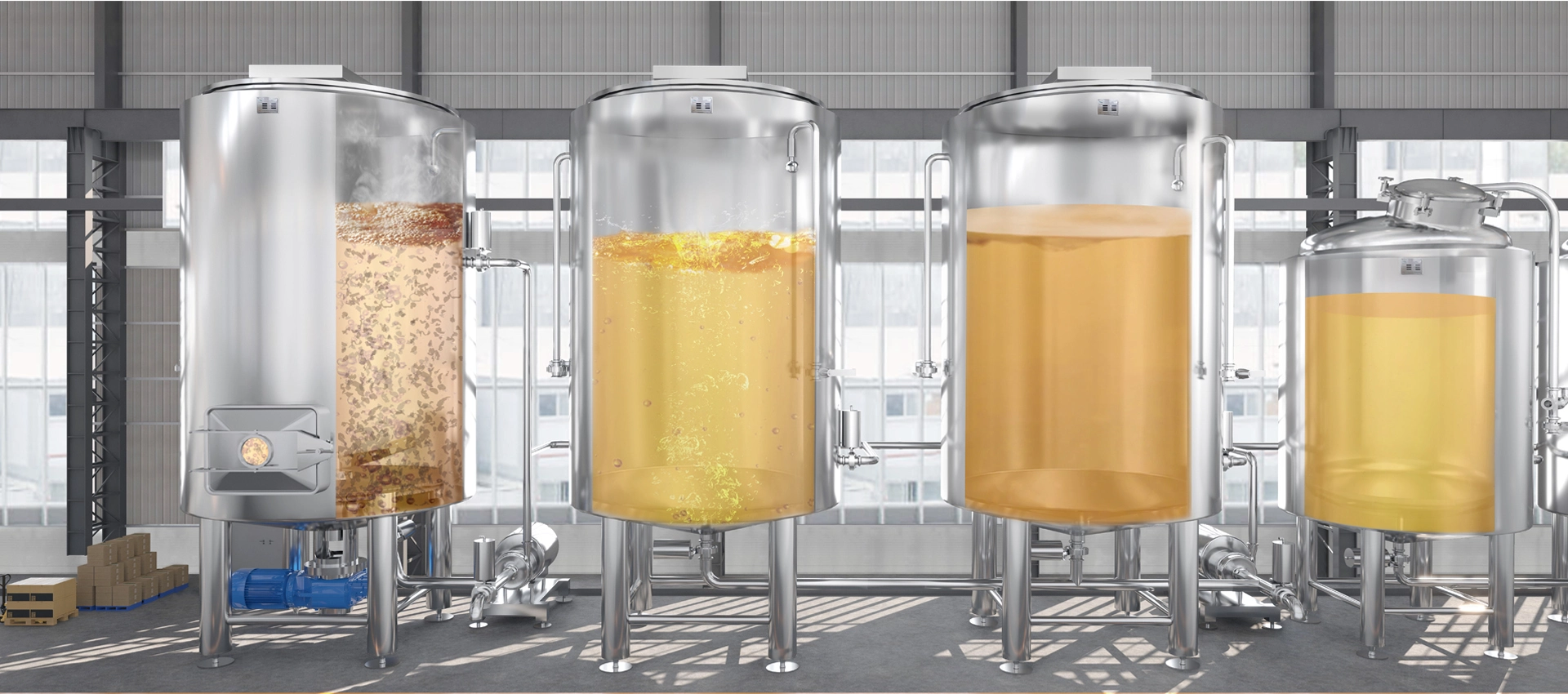In the kombucha sector, attention is frequently focused on the interrelationship between this acidic beverage and various fermentation tank materials. It is well known that metals may interact adversely with acidic conditions. Generally, metals such as brass and aluminum are not suitable for kombucha making due to their reactivity. However, what about stainless steel?

Why 304 and 316 Stainless Steels are Ideal for Kombucha
The fermentation process produces naturally acidic substances, which can interact with certain metals, causing corrosion, leaching, and unwanted changes in flavor. However, when it comes to food-grade stainless steel, the situation is different.
Corrosion Resistance for Acidic Environments
Both 304 and 316 stainless steels are highly corrosion-resistant due to their high chromium content. The chromium atoms form a thin layer of chromium oxide on the steel surface, protecting against rust and damage, even in acidic environments like kombucha. This layer has self-healing properties, ensuring long-term resistance against corrosion and oxidation.
Molybdenum Advantage of SUS 316
While 304 stainless steel is already corrosion-resistant, 316 stainless steel offers enhanced protection.The addition of molybdenum to 316 stainless steel provides excellent protection against chlorides and more concentrated acids. For brewers working in harsh conditions or seeking a longer-lasting solution, 316 stainless steel offers enhanced protection, ensuring the tank remains unaffected by the acidic brew over time.
Non-Reactive and Flavor-Safe
The non-reactive surface of 304 and 316 stainless steel is one of its most significant benefits. These grades of stainless steel do not leach substances or flavors into kombucha, preserving the integrity and health benefits of your kombucha. And maintaining the unique flavor profile that consumers expect is essential, and using these grades of steel is one way to achieve this.
Strength and Durability
Both 304 and 316 stainless steels are recognized for their durability and strength. These materials are suitable for use in brewing and cleaning processes as they can withstand high temperatures. They are therefore an ideal choice for consistent and long-term use in kombucha production. The material durability reduces concerns about wear and tear over time, making them an affordable choice.
Hygienic and Easy to Clean
Another reason why 304 and 316 stainless steels are preferred in food and beverage production is the smooth, non-porous surface achieved through high-degree polishing. These materials facilitate sanitation and cleanliness, which is essential for maintaining a safe environment for kombucha fermentation. Prevent contamination and maintain the health of the SCOBY, which relies on a clean, controlled environment to thrive.
Conclusion
Food-grade stainless steel, particularly 304 and 316, offers unparalleled advantages in terms of corrosion resistance, non-reactivity, and durability, making it an ideal material for a wide range of food-related applications. The combination of these qualities makes stainless steel tanks an optimal selection for brewing kombucha, guaranteeing the safety, taste, and quality of your kombucha.
Investing in stainless steel equipment is an invaluable decision, whether you brew at home or manage a commercial kombucha brewery. This choice ensures that your kombucha is produced with unmatched reliability, safety, and efficiency.
